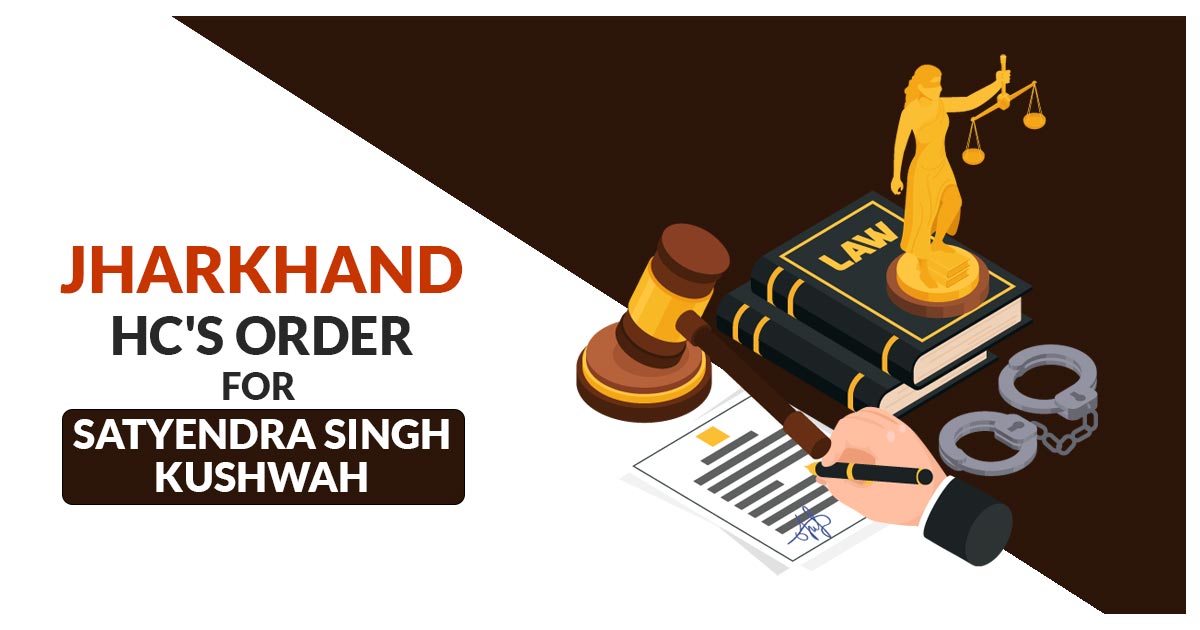
Emphasizing the significance of adhering to due process and complying with statutory obligations, the Jharkhand High Court made a noteworthy decision by nullifying criminal proceedings related to the failure to comply with summons issued under Section 70 of the Central Goods and Services Act, 2017 (CGST Act).
It is important to highlight that Section 70 of the CGST Act grants authority to concerned officers to issue summons, compelling individuals to provide testimony and submit relevant documents.
This ruling was delivered in response to two petitions seeking the dismissal of the entire criminal proceedings arising from a Complaint Case, including the order of cognizance under Section 174 of the Indian Penal Code. These proceedings were pending in the court of the Judicial Magistrate, 1st Class, Ranchi.
The Complaint Case alleged that the accused, who obtained G.S.T. Registration in 2017, failed to make GST payments from January 2018 to November 2018 before the commencement of the investigation.
The accused was also accused of intentionally disregarding summonses issued by the Central Goods and Service Tax Department under Section 70 of the Central Goods and Service Tax Act, 2017, failing to appear on any of the four occasions specified in the summonses.
Furthermore, it was asserted that the accused had contravened the stipulations of Section 70 of the CGST Act, and as a consequence of the accused’s non-compliance with the summonses, legal proceedings under Section 174 of the Indian Penal Code were initiated against them.
During the proceedings, Advocate Shilpi Sandil Gadodia, representing the petitioners, argued that while the complaint alleged the issuance of four summonses against the petitioner company, the specific details of these summonses were not provided in the complaint petition.
She additionally argued that the petitioner company primarily operated in the transportation of coal services and, upon the implementation of the GST regime, the company duly registered for its operations conducted in the State of Jharkhand.
Furthermore, she highlighted that the petitioner company, in the course of providing its services, invoiced clients for payment. However, the clients, being recipients of the services, consistently delayed making payments to the petitioner company.
Contrastingly, P.A.S. Pati, representing the second opposing party, contended that the petitioner failed to comply with the summons without a valid excuse. The petitioner intentionally refrained from providing evidence, making statements, and producing the documents and items specified in the schedule.
He went on to argue that the company’s authorized representative did not appear, leading to the filing of a complaint case under Section 174 of the Indian Penal Code. This section pertains to the non-compliance of directions from public authorities, with the GST authority considered a public authority as per Section 156 of the CGST Act, 2017.
The petitioner’s counsel argued that being a private limited company, Section 89 of the CGST Act applies, eliminating the requirement for a statement. Consequently, anyone overseeing the company’s daily affairs would be held liable.
Relying on Section 135 of the CGST Act, Advocate Pati emphasized that proving a culpable mental state is only possible during a trial. He further stated that non-appearance after receiving a summons renders Section 174 of the Indian Penal Code applicable, justifying the dismissal of the petitions.
Based on the arguments presented, the Court concluded that the amount of GST had already been deposited, as mentioned in the counter affidavit. The absence of any legal proceedings or recovery cases indicated no outstanding dues against the petitioners.
The Court observed that no further proceedings were initiated to determine unpaid taxes, as outlined in Section 73 of the CGST Act, confirming that the disputed amount had been paid.
Regarding Section 70 of the CGST Act, the Court observed that it allows summoning individuals for testimony and document production, with the inquiry following the Civil Procedure Code, and only Sections 193 and 228 of the Indian Penal Code are relevant according to Subsection (2) of Section 70.
The Court also discussed Section 125, which imposes a general penalty of up to Rs. 25,000, and Section 132, which outlines punishment under the CGST Act. However, no cases had been registered against the petitioners under these sections.
The Court highlighted that the records demonstrated compliance with the summons, acknowledged by the authority granting additional time. Therefore, non-compliance with the authority’s summons was not applicable in this case.
The bench of Justice Sanjay Kumar Dwivedi observed, “In view of the above facts and considering that the summons was replied, which were entertained by the authority concerned and it cannot be said that the petitioners have not complied with the summons, issued by the authority concerned and further there is the procedure prescribed under the CGST Act, 2017 for penalty under Section 125 which restricted to a fine of Rs.25,000/- only and none of the failure prescribed in Section 132 of the said Act is the subject matter of the present cases and further Section 70 of the said Act speaks of procedure to be adopted for summoning, that will under the Code of Civil Procedure and further considering that the reply to the summons was entertained by the authority concerned, to allow to continue the proceeding under Section 174 of the Indian Penal Code against the petitioners’ amount to an abuse of process of law.”
Considering the aforementioned facts and analysis, the Court quashed all criminal proceedings, including the pending order in the Judicial Magistrate’s Court, and subsequently approved and disposed of the petitioners.
| Case Title | Satyendra Singh Kushwah Vs State of Jharkhand |
| Citation | Cr.M.P. No. 2454 of 2019 With Cr.M.P. No. 2449 of 2019 |
| Date | 05.10.2023 |
| Counsel for Petitioner | Mrs. Shilpi Sandil Gadodia |
| For the State | None |
| For O.P. No.2 | Mr. P.A.S. Pati |
| Jharkhand High Court | Read Order |









